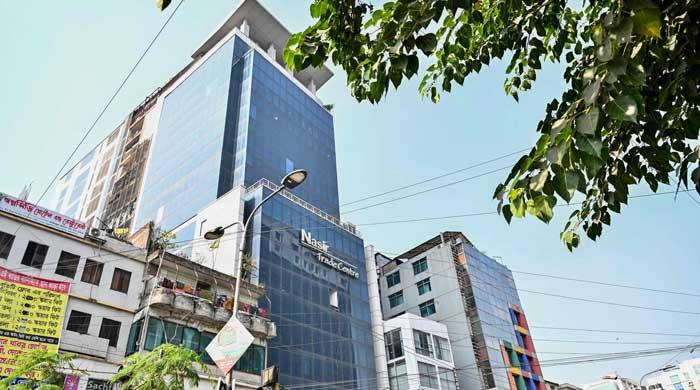DHAKA: Bangladesh student protesters entered the offices of the investor of a television station accusing it of “propaganda”, protesters said Tuesday, with at least five journalists subsequently fired.
The students had taken part in the August revolution that toppled prime minister Sheikh Hasina, whose tenure was marked as one of the worst periods for media freedom.
Hasnat Abdullah, convener of the Anti-Discrimination Students Movement, led around 15 to 20 students on December 17 to the offices of City Group, who invest in Somoy Television.
“Somoy Television was spreading propaganda, twisting my comments, and accommodating the views of a fallen political party,” Hasnat told AFP.
“We are staunch supporters of press freedom, but the press must remain unbiased,” Hasnat said, adding that he saw no issue in making demands — but rejecting reports the students had handed over a list of those they wanted fired.
The managing director of the business conglomerate that funds the television station did not respond to repeated requests for comment.
The incident has intensified fear among journalists in the wake of the revolution.
One journalist, Omar Faroque, who had been a senior editor of the television station, said he was among the five who received a termination letter without reason.
“The television authorities requested a few of us to step down for the greater good of the station,” Faroque told AFP.
“We demanded an explanation for the decision, but the authorities refused to provide any.”
Interim leader Muhammad Yunus has repeatedly insisted he wants media freedom.
Yunus’ press secretary Shafiqul Alam sought to distance the government, saying that if someone “takes any action, the responsibility lies with them”.
Press watchdogs say many journalists — seen by critics as having supported Hasina when she was in power — face police investigations in apparent retaliation for their past work.
At least four journalists were imprisoned, and scores are facing legal cases across the country.
Hasina and her government were frequently accused of exerting undue pressure on the handful of independent media outlets, including shutting down newspapers and TV channels, and imprisoning journalists.
After Hasina’s government fell, several TV channels including Somoy TV came under attack for their alleged allegiance to her Awami League.
In November, protesters besieged the offices of Prothom Alo — the largest Bengali-language newspaper — and threatened to shut it down, as well as The Daily Star.
Press freedom in Bangladesh has long been under threat.
Bangladesh ranks 165 out of 180 countries in press freedom, according to Reporters Without Borders.

